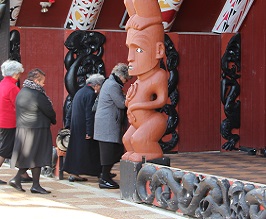Youth Court overview
The Youth Court is a division of the District Court.
Most young people who get into trouble with the law do not come to the Youth Court. Police will usually deal with low-level offending in the community: by issuing a warning, or by undertaking an Alternative Action Plan. This might include paying for damage, doing community work, writing an apology letter and/or attending counselling.
When a young person commits a serious offence, they may be directed to a Youth Court to come before a Youth Court Judge. Youth Courts deal with all serious offending committed by a young person other than murder and manslaughter. Murder and manslaughter cases will begin in the Youth Court, before being transferred to the High Court. The Youth Court does not deal with traffic offending.
The Judge will have received special training to deal with young people. The process will depend on the age of the child or young person:
- Most young people in the Youth Court will be between 14-17 years old, however 12 and 13 year olds will be included if they are charged with particularly serious offences.
- Since July 1 2019 the Youth Court now includes 17 year olds who have been charged with an offence. If the charge is particularly serious (such as aggravated robbery) it will be transferred to the District Court after the young person's first appearance in the Youth Court. These offences are called "Schedule 1A" offences.
The Youth Court is closed to the public. Media is entitled by right to attend, but must apply to the Judge before they can publish anything. It is never okay to publish the name of the child or young person, their family, their school or any identifying details. More information can be found here: Media and Newsletters.
If it is proven that a young person did commit the offence, the Youth Court has a range of responses available. These include discharging a young person who has completed a Family Group Conference plan, to detention in a secure Youth Justice Residence. In very serious cases the Youth Court may transfer the case to the District Court for sentence.

